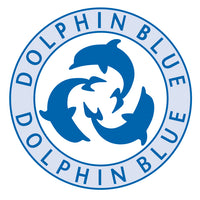
Fish is a lean protein that's a major source of healthy omega-3 fatty acids, important vitamins such as calcium and iron, and essential minerals like magnesium and phosphorus. Studies have shown that including fatty fish in your diet is excellent for heart health and brain health. But not all servings of fish are created equal - the provided health benefits can be dependent on where the fish spent its life swimming.
Fish farming, or aquaculture, is a practice that has become popular in recent decades due to its manageability and an increasing demand for seafood. Fish are raised commercially in enclosures, commonly in the form of net pens in offshore coastal saltwater or freshwater environments, to eventually be sold for food. Aquaculture has been a valuable innovation and is largely why fish and other seafood are consistently available for our consumption.
While farmed fish can help with the problem of overfishing and can cut down on distance traveled to your plate, they also have a greater risk of disease, larger concentrations of toxins, and the potential to negatively impact local ecology.
Pollutants like polychlorated biphenyls (PCBs) and dioxins are released into coastal waters by way of land runoff and thus are in highest concentrations in near-shore areas where most fish farming takes place. As a result, farmed fish commonly contain significantly higher concentrations of these harmful pollutants compared with wild fish.
Why? Imagine you're in an airplane with one flu-ridden passenger. By the end of the flight, other passengers are likely to have caught the flu as well. Farmed fish are in a similar situation when kept in enclosures like net pens - the high density of fish in a small area keeps them in constant contact with one another, allowing disease to spread easily.

Farmed fish are fed pellets usually made from grain or other plant material. It turns out that the reason why fish is high in healthy omega-3s is due to their diet in the wild. Therefore, farmed fish tend to have significantly lower concentrations of omega-3s. The food pellets at these farms are also inefficient in terms of energy and resources; it takes more energy to produce enough pellets to feed farmed fish than the fish will provide as food themselves. Wild fish are easier on the environment due to their self-sustaining dietary habits and contributions to the local ecosystem.
Another problem stemming from fish farming is escapees. Individual fish have been reported escaping from net pens, exposing themselves to wild fish populations where they can spread diseases or even out-compete them. The Atlantic salmon is an example of a farmed fish that may out-compete its wild neighbors; the superior size gives it an advantage in finding food and warding off predators. Atlantic salmon are commonly farmed on the West Coast of the U.S. in coastal net pens, so an escapee could certainly be detrimental for the local wild Pacific salmon.
When you're choosing your seafood, consider the source - for now, sustainably harvested wild fish are likely to be the best option both for your health and that of the environment."
